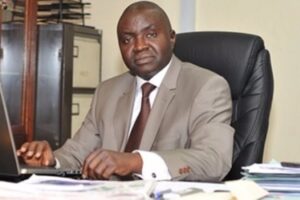


Dangote, Onyema responsible for recovering economy – Agbakoba
A former chairman of the Nigerian Bar Association, NBA, Olisa Agbakoba, SAN, has said that the economy is beginning to turn, showing signs of recovery.
This is even as he suggested that the turning points now witnessed in the economy is due to the efforts of just two persons – Aliko Dangote and Allen Onyema, CEO Dangote Group and CEO of Air Peace Airlines, respectively.
He said the forex market reacted to Dangote Refinery commencing sales of diesel and Air Peace flying to the UK, as the Naira strengthened against the dollar.
Agbakoba, who said that Nigeria’s economy has gone through very challenging times over the past year, noted that inflation reached 28.92 per cent in December 2023, the highest in 27 years.
The former NBA chairman opined that the much-needed relief for Nigerians will occur if this trend continues.
In a post on his X handle on Friday, the legal expert noted that the development raises the issue of putting the private sector at the center of economic development.
He, therefore, advised the government to withdraw from business, stressing that the nation must move immediately from consumption to production.
In the post titled, ‘IS THE ECONOMY BEGINNING TO TURN?’, Agbakoba said, “Nigeria’s economy has gone through very challenging times over the past year. Inflation reached 28.92% in December 2023, the highest in 27 years. Food inflation rose to 33.93% in December 2023.
“The naira depreciated significantly, losing 25% of value in a single day in June 2023 when the government removed pegging to the US dollar. This made imports much more expensive.
“Removal of fuel subsidies in May 2023 caused petrol prices to jump by 196% practically overnight, from ₦189 to ₦557 per litre. Prices went through the roof!
“According to the World Bank, accelerating inflation pushed an additional 24 million Nigerians into poverty in the first five months of 2023. By late 2022, 63% of Nigerians (133 million people) were considered multidimensionally poor.
“Major foreign companies like Procter & Gamble, GSK, and Bayer stopped manufacturing and scaled back operations in Nigeria, due to tough operating environment. This resulted in massive job losses.
“However, there may be signals the economy may be turning?
“Dangote refinery commenced sales of diesel, significantly increasing supply and crashing prices significantly. Diesel prices dropped from about ₦1,700 per litre to around ₦1,350 per litre. This was just by pumping 100 million litres. Dangote plans to pump another 100 million litres. Diesel prices may dip below N1000. Dangote announced plans to begin sale of Premium Motor Spirit (PMS) by May. This will significantly bring down prices. Experts predict petrol prices to crash by at least 25% to N400.
“Additionally, @flyairpeace, with the support of Festus Keyamo, Minister of Aviation, finally broke through the reciprocity barrier in aviation. Air peace is now flying to the UK. Ticket prices monopolized by British Airways and Virgin Atlantic crashed by at least 60%.
“The forex market reacted to all these. The Naira strengthened against the dollar. Experts suggest the price of the dollar may well fall below ₦1000 in the coming months. If this trend continues, much-needed relief for Nigerians will occur. The Central Bank of Nigeria may potentially review the Monetary Policy Rate (MPR) by Q4.
“It is notable that the turning points now witnessed in the economy, is the work of just two persons (Dangote and Onyema). Imagine what 10, 20 or 50 private sector individuals can do. This raises the issue of putting the private sector at the center of economic development. Government must withdraw from business. We must move immediately from consumption to production. Q4, 2024, may look on the bright side but it is still early days.”



